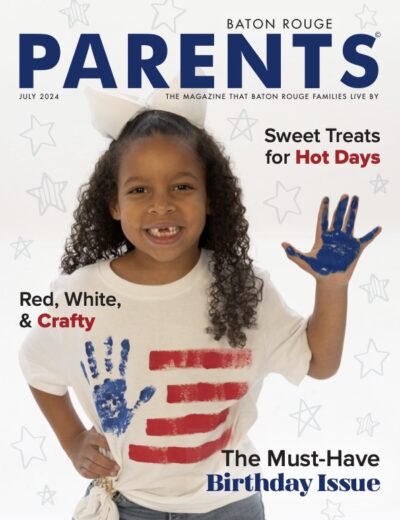
Have you Talked to Your Child about Alcohol?
Alcohol, tobacco, and illegal substances are everywhere that our children are. Despite the frequency or moderation, children watch their parents and other adults consume alcohol at home, socially, and at family gatherings. They see alcohol prominently sold in grocery stores, on television, and in radio advertisements. There are colorful, flamboyant and often influential commercials on television highlighting alcohol during prime-time shows and sporting events.
With all of the fun and somewhat “cool” appearance, should parents really be surprised if their children are interested in trying alcohol? How does a young child differentiate between what is harmful and what is appropriate use of these substances?
Many parents may think that high school is the first time their child will have an interest in or be approached with an alcoholic beverage. Sadly, this is not the case or reality. According to a 2008 Louisiana Caring Communities Youth Survey (LCCYS) report, more than 25 percent of students in the sixth grade have consumed alcohol in their lifetime and almost 50 percent of eight graders have consumed alcohol.
Children as young as five years old are conscious of cigarettes and alcoholic beverages, but not always sure why they can’t have them. By the time a child is in elementary school, they’ve already been exposed to countless commercials on an array of alcoholic beverages and substances. Regardless of social or economic background, young children are quite aware that various legal and illegal products are a part of society. It is never too early to implement your first line of defense against alcohol and substance use.
Children are curious.
Children hear warnings about safely consuming alcohol mixed in with commercials and media campaigns promoting its use. Strong promotions urging them to say “no” to illegal drugs have become widespread throughout schools and communities through programs such as D.A.R.E. Rarely do young children realize that alcohol is a mind and mood altering substance.
Children have very simplistic and natural curiosities about alcohol. They are especially curious about what it tastes like. A majority of children wonder why people drink alcoholic beverages, and what happens when you drink them. A surprising 6 out of 10 three- and four-year-olds are able to correctly identify beer and wine. The first question the majority of five-year-old children will ask is “What do beer and/or wine taste like?”
Adolescents often perceive alcohol as the lesser of socially used chemicals. A startling seven out of ten teenagers believe that alcohol does not cause any permanent harm. They also firmly believe they can remain in complete control if under the influence. Children and teenagers are certain they would never develop a dependency on alcoholic beverages.
Timing is everything.
Children are instinctively inquisitive and impressionable. If your child seems to pay attention to an alcohol advertisement in a magazine or on television, ask him if he knows the meaning. What does he think alcohol is? Does he know the potential effects of drinking alcohol? Ask if he or any of his friends think about trying alcohol. Does your child comprehend that even adults must exercise good judgment? Casually starting a conversation can give you the opportunity to see what your child thinks alcohol is and help gain insight into his perception.
Some common misconceptions children have are that it is not harmful to drink beer; it’s not fair grown-ups get to taste it; and that it’s ‘cool’ to drink. Assessing what factual information your child has is a good place to begin educating him.
They need your strength.
Your child needs to know that he can trust you. He needs reassurance that you will answer his questions honestly and without fear that he’ll be creating an unpleasant situation. Confiding uncomfortably honest details about a friend’s use or his genuine uncertainty requires listening without judgment. If he worries that the only outcome is for you to become angry that he is asking about alcohol, odds are, he’ll avoid communicating his feelings to you. Demonstrate a willingness to listen to him as well as express your viewpoint. Explain your concerns, fears, experiences with age-appropriate consideration, and understanding phrases.
Today’s tweens and teens need truthful, direct, and honest examples of consequences such as personal injury, alcohol’s impact for altering learning capacity, state age requirements, losing a drivers license if under the influence, and even the possibility of a fatal accident.
Responses such as, “It’s not fair that I have to be a grown-up to try it” or “My friend’s parents let him have a wine cooler” are typical of their age. These statements require parents to be patient, not become upset and remind your teen that many things in life seem unfair, but your job is to ensure his safety and well-being.





